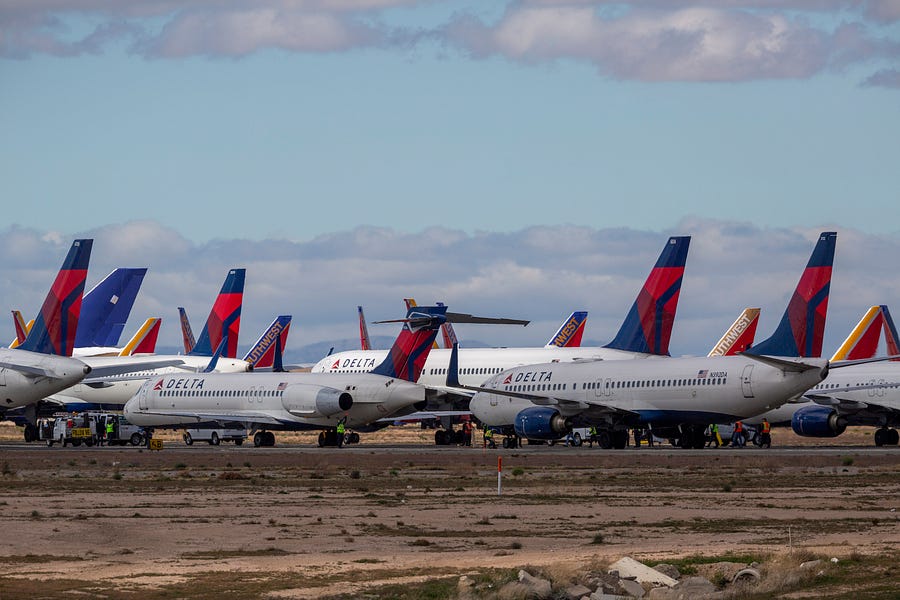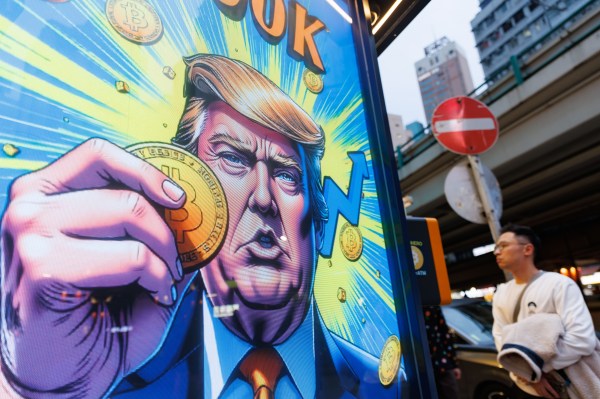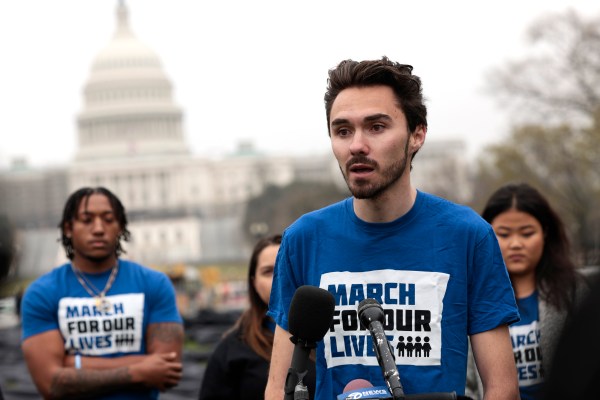Last week, Congress passed a $2 trillion economic relief package, the CARES Act, which included up to $50 billion in aid for passenger airlines. An airline may request a direct payroll grant for “the equivalent of their payroll between April 1 and Sept. 30 of last year” and five-year government loans that “would carry tougher terms than grants or loans from private banks.”
But this wasn’t the only option on the table. Richard Squire, a bankruptcy law professor at Fordham University, published an intriguing op-ed in the Washington Post that advocated for letting airline companies file for Chapter 11 bankruptcy in lieu of a taxpayer-funded bailout.
With 230 million Americans living under “stay-at-home” orders that have required non-essential businesses to shutter (though the definition of “essential” varies by jurisdiction), airlines won’t be the only businesses facing an existential threat before April 30.
We reached out to Squire to discuss why he favors bankruptcy over federal grants and loans (broadly referred to as “bailouts”) and what options Congress has available moving forward.
Why could bankruptcy be more fair than direct grants and loans?
Squire argued that the problem posed by COVID-19 is a question about how to redistribute a sudden “deletion of wealth.” He argues that some part of that wealth loss is a natural reduction in demand for certain businesses and should be considered a business risk—albeit in an otherwise extraordinary situation. However, mandatory closure orders imposed by state governments increase those losses from a perhaps 40 percent or 60 percent reduction in demand to a 100 percent loss for businesses that are completely shuttered. But, importantly, the reduction is temporary, and the underlying businesses remain viable.
This is what bankruptcy was designed for, says Squire. At the highest level of generality, Chapter 11 of the Bankruptcy Code allows an insolvent company to renegotiate its terms of debt with its creditors while remaining in business. (Chapter 7 allows a business that no longer has a viable future to sell off its assets to pay off debt, which is not what Squire is discussing for the remainder of this article.)
In Squire’s view, Chapter 11 bankruptcy is the fairest way to decide how losses are distributed when businesses can no longer pay back debt and which businesses are viable enough for new loans. By stepping in with taxpayer-funded loans or grants, the federal government is not only picking winners and losers but also reallocating a risk that should be equally distributed across every affected industry.
The other issue raised by Squire is that some state governments are being more aggressive than others. This means that if the federal government continues to provide these direct grants it is also decoupling the economic cost of closure orders and incentivizing more and longer closures if states believe federal taxpayers will cover the loss.
Can corporate bankruptcy help save jobs?
Let’s take a step back to remember that bankruptcy is fundamentally about reorganizing debt obligations. In this case, airlines—and plenty of other businesses—aren’t in trouble because they can’t pay the interest on a bank loan. In fact, major creditors like banks have no overriding interest in forcing any of their large corporate debtors into bankruptcy if they believe that they can get payments back on track in a few months time.
The problem is that some of these companies don’t have the revenue to meet payroll next month, and the result is that they have to furlough employees, driving the record unemployment numbers reported last week.
And this is where we get to the main difference between federal payroll grants and bankruptcy. A company in bankruptcy will probably furlough employees if a temporary drop in demand leaves them with no work to do. The payroll grants in the CARES Act, however, could do more to help airline employees in the short term because the act restricts an airline company from issuing involuntary furloughs as a condition of receiving a payroll grant—whether demand returns or not.
Even though the bankruptcy process won’t prevent those furloughs that are based on decreased demand, Squire argued that it is unfair to single out the airline industry for payroll relief when the pandemic is affecting any number of industries in the same manner.
On the other hand, according to Reuters, the prospect of payroll grants didn’t stop furloughs last week—even in the airlines. While Congress was debating the legislation, Delta reported that more than 17,000 employees “volunteered for unpaid leave for 30, 60 or 90 days, and Chief Executive Ed Bastian []asked employees to work only three or four days a week between April and June to save around 25% in payroll costs.”
What if the federal government acted as the lender in these bankruptcies?
There is an option between federal bailouts and the normal bankruptcy process, as Squire described. After the 2008 financial crash, General Motors and Chrysler filed for Chapter 11 bankruptcy, but rather than appeal to banks for further loans, it was the federal government that provided the lion’s share of the new credit. This both ensured the two automakers’ future viability and allowed the federal government some say in how much creditors got paid. This option, argued Squire, could allow for Congress to step in where there is a national interest that may not be recognized by the market but still ensure some of the fundamental fairness that the bankruptcy process was designed to protect.
Which companies are likely to survive bankruptcy?
The fundamentals of the economy haven’t changed the way they did in 2008. Instead, we’ve “hit pause—not by destroying the means of production but by deleting 4-6 weeks of that production.” As Squire pointed out, economically speaking (though not in terms of actual enjoyment), “it’s more like a long vacation. … Europe does this every summer.” Large, publicly traded companies already fare very well in Chapter 11 bankruptcy, with nearly 100 percent coming out on the other side. The smaller a company is, however, the more likely it will convert to Chapter 7 and shut down. But that’s in a “normal economy,” according to Squire. And in those cases, bankruptcies are fundamentally caused by a business failure—a company that expanded too quickly, poor management, or a business model that is no longer viable. Given the nature of this crisis, Squire expects Chapter 11 survival rates to be much higher under these conditions.
Who bears the loss?
COVID-19 represents an unprecedented challenge for the country. Part of that challenge, as Squire importantly highlighted, is determining who should bear the economic loss caused by a mostly nationwide shutdown of many sectors of the economy for at least six weeks.
Notwithstanding the logic in Squire’s arguments, it is the political body that has to decide what to do when the vast majority of the businesses facing an existential crisis did nothing wrong. They didn’t invest in risky mortgages or fail to see the internet revolution or get stuck on the wrong end of an energy demand curve. These businesses are in danger of failing because a governor or county commissioner government asked (or in the majority of states now, ordered) them to shut down for the public good. And for that, there’s at least a reasonable counter-argument to Squire that all should pay the price.
However, how we accommodate them, who gets help first, and who decides which companies survive is far from clear. Conversations with bankruptcy experts like Richard Squire offer one set of options for what that road map may look like for a lot of America’s businesses. But, then again, it’s hard to know what we don’t yet know about the state of America’s health—economic and otherwise—come April 30.
Photograph of Delta planes parked in California by David McNew/Getty Images.







Please note that we at The Dispatch hold ourselves, our work, and our commenters to a higher standard than other places on the internet. We welcome comments that foster genuine debate or discussion—including comments critical of us or our work—but responses that include ad hominem attacks on fellow Dispatch members or are intended to stoke fear and anger may be moderated.
With your membership, you only have the ability to comment on The Morning Dispatch articles. Consider upgrading to join the conversation everywhere.